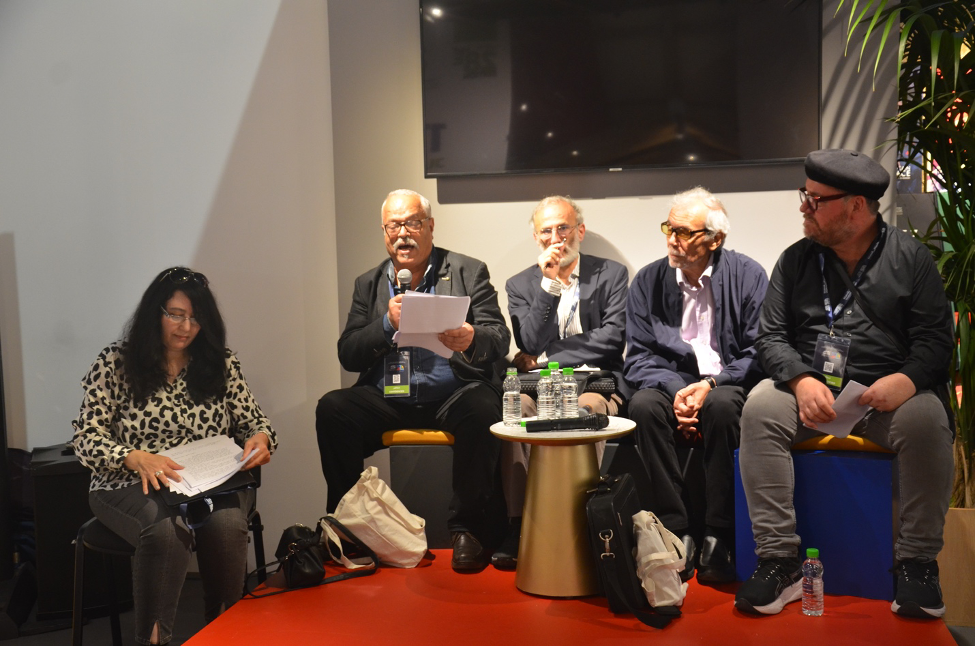
A conference held at the Ministry of Youth, Culture, and Communication pavilion during the third day of the International Publishing Book Fair (Siel) brought together literary icons to discuss the extent of self-translation and its impact on preserving the originality of texts.

A conference held at the Ministry of Youth, Culture, and Communication pavilion during the third day of the International Publishing Book Fair (Siel) brought together literary icons to discuss the extent of self-translation and its impact on preserving the originality of texts.

A conference held at the Ministry of Youth, Culture, and Communication pavilion during the third day of the International Publishing Book Fair (Siel) brought together literary icons to discuss the extent of self-translation and its impact on preserving the originality of texts.
The conference featured lectures from four significant literary figures: the author and critic Abdel Fattah Kilito, translators Abdel Salam ben Abdel Ali and Aissa Makhlouf, as well as the Iraqi writer Sinan Antoun. The event commenced by addressing the challenges of translation in maintaining the authenticity and original meaning of a text, specifically exploring how the transition from one language to another affects the essence of the content.
Mr. Abdelsalam ben Abdel Ali stated that "The more translation eliminates intermediaries, the closer it comes to the original text, but it can never truly match it." He emphasized that achieving this level of closeness can only be achieved when the writer translates his own text.
According to him, translation becomes another text that closely aligns with the original but is "not quite the same." The author defends this viewpoint, arguing that "no one understands the reality of metaphors and expressions better than the person who wrote them initially, making it more appropriate for the writer to transfer them to another language himself."
Mr. Sinan Antoun endorsed this approach, drawing from personal experiences of translating his own novels. He stated, "When I translated my work, I came to the conclusion that the ideal translator is the writer himself." He further explained that this decision was made after having two of his books translated by others, where he did not feel the slightest sense of familiarity with the text.
Writer Aissa Makhlouf stressed that translation, whether done by the author of the original text or by someone else, remains a parallel text that creates its own meanings. “a text alone in his own orbit” he expressed.
The critic and writer Abdel-Fattah Kilito shared his experience in the field, highlighting that the main problem faced by writers who practice self-translation is the transition of a text initially thought of in a certain language to another, their own thoughts may get distorted. Kilito emphasized that understanding the cultural nuances and context behind the language is crucial for successful translation.
To sum up the conference, self-translation is considered by many as a means of preserving the originality of a text while making it accessible to others. However, it is important to note that translation, whether self-translated or done by others, can still result in a text that possesses its own nuances and divergences.
